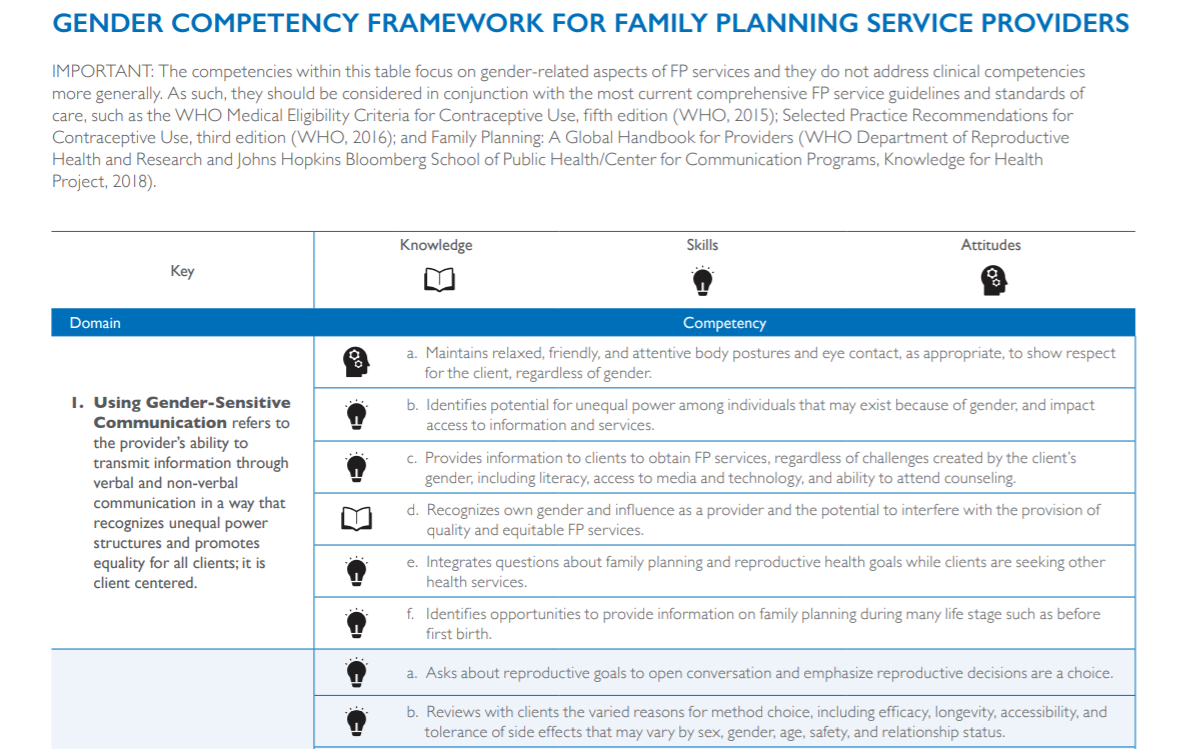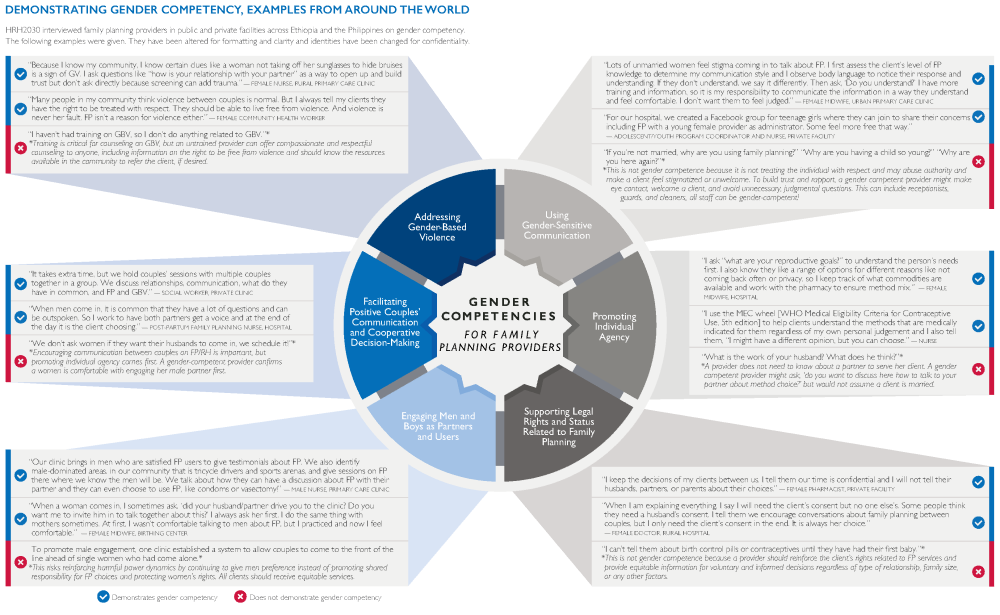20 Sep 2nd Edition! Defining and Advancing Gender-Competent Family Planning Service Providers: A Competency Framework and Technical Brief
Updated July 2020
Around the world, gender norms influence the ability of individuals, couples, and families to meet their desired family planning needs. Provider bias and power imbalances in client-provider and client-client interactions impact the quality and accessibility of family planning reproductive health service providers who have great potential to be change agents. As they overcome biases and offer quality, gender-sensitive, transformative services, they will help all clients make voluntary and informed decisions about their family planning needs, improving both gender equality and reproductive health outcomes.
HRH2030 and USAID’s Office of Population and Reproductive Health developed a global gender-competency framework for family planning service providers (click on the image at right) to reduce provider bias and improve family planning services. The framework uses the following six domains to organize competencies, each of which are made up of specific knowledge, skills, and attitudes to build health workers’ skills in delivering quality services. The domains are:
-
- Using gender-sensitive communication
- Promoting individual agency
- Supporting legal rights and status related to family planning in accordance with rights and local laws
- Engaging men and boys as partners and users
- Facilitating positive couples’ communication and cooperative decision-making
- Addressing gender-based violence
Here is a partial view of the framework. Please click on the image to see the full framework:
As a part of the second edition updates, HRH2030 interviewed family planning providers in public and private facilities across Ethiopia and the Philippines on gender competency. The following examples were given. Please click on the image to enlarge:
Other updates in the second edition include guidance on incorporating gender competencies into the health system, a resource spotlight providing key materials for more information and training, and an infographic that illustrates the different ways gender competency can apply for the health workforce.
Overall, this resource can be used broadly with other cadres and in other health sectors as well. Health ministries and HRH professionals can use this competency framework to enhance or add gender dimensions to cadre- or program-specific competency frameworks. It can also be used by health program managers and human resources professionals involved in the development of job descriptions, supervision strategies, pre-service education curricula, in-service training plans and curricula, and licensing. At the facility level, managers and supervisors can use the framework for performance management of health workers, including community-based providers and private sector family planning providers such as small drug shop owners and pharmacists.
Associated Content:
Presenting the 2nd Edition Gender Competency Brief for Family Planning Providers (podcast)
Applying Gender Competency to the HRH2030 Health Worker Life Cycle
Three Main Takeaways: Testing the Gender Competency Framework in Ethiopia
A Compendium of HRH2030 Resources Regarding Gender, Women, and Health
Four Takeaways: Testing the Gender Competency Framework in the Philippines
Empowering Health Workers to Provide Gender-Competent Family Planning Services
Three Questions with Samantha Law: Creating a Gender-Competent Family Planning Workforce
HRH2030 Vets Gender Competency Work with Experts
Empowering Health Workers to #BeBoldforChange
Country: Global
Resource Type: Tool
Topic: Family Planning, skill mix and competency, gender
VIEW ON ISSUU DOWNLOAD PDF







